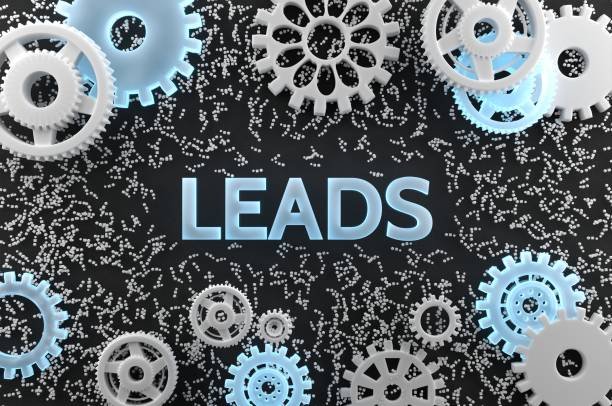Attracting and converting leads is more challenging than ever. Traditional marketing strategies, while still valuable, often fall short when it comes to truly engaging potential customers. This is where personalized marketing steps in. By tailoring your marketing efforts to the specific needs, preferences, and behaviors of your target audience, you can significantly enhance your lead generation efforts. But how exactly does personalized marketing make such a difference? Let’s explore the key aspects of personalized marketing and how it can transform your lead generation strategy.
Understanding Personalized Marketing
Personalized marketing involves customizing your marketing messages and offers to meet the individual needs of your potential customers. This approach leverages data and insights about your audience to create more relevant and engaging experiences. Unlike traditional one-size-fits-all marketing, personalized marketing focuses on delivering the right message to the right person at the right time.
Key Components of Personalized Marketing:
- Segmentation: Dividing your audience into distinct groups based on characteristics such as demographics, behavior, and preferences.
- Targeted Content: Creating content that speaks directly to the interests and needs of each segment.
- Behavioral Triggers: Using customer actions or inactions (like clicking a link or abandoning a cart) to trigger personalized responses.
- Dynamic Content: Altering content in real-time based on user behavior or preferences.
How Personalized Marketing Drives Lead Generation
Personalized marketing is a powerful tool for driving lead generation. When done correctly, it can lead to higher engagement rates, better conversion rates, and ultimately, more qualified leads. Here’s how personalized marketing enhances your lead generation efforts:
Increased Engagement
Personalized marketing captures attention by delivering content that resonates with the audience. When prospects receive marketing materials that are relevant to their specific needs and interests, they are more likely to engage. Whether it’s a personalized email, a tailored landing page, or a targeted ad, personalization makes the audience feel understood and valued, which increases the likelihood of interaction.
Example: Dynamic Email Campaigns
Imagine a potential customer who has been browsing fitness equipment on your website. A personalized email campaign that highlights the specific products they viewed, along with similar items, will likely result in higher engagement than a generic email blast.
Enhanced Customer Experience
Personalized marketing contributes to a more seamless and enjoyable customer experience. By anticipating customer needs and providing relevant information at each stage of the buyer’s journey, you can guide prospects more effectively through the sales funnel. A positive experience not only keeps potential leads engaged but also increases the likelihood of conversion.
Example: Personalized Website Content
If a visitor to your website is identified as a returning user, you can personalize the content they see based on their previous interactions. For example, if they showed interest in a particular service, the homepage could highlight that service, making it easier for them to take the next step.
Higher Conversion Rates
The ultimate goal of lead generation is to convert prospects into paying customers. Personalized marketing plays a crucial role in this process by providing tailored solutions to customer problems. When prospects see that your business understands their needs and can offer relevant solutions, they are more likely to convert.
Example: Customized Offers
Offering personalized discounts or promotions based on a lead’s past behavior or expressed interest can significantly boost conversion rates. For instance, if a lead has been browsing a particular product but hasn’t made a purchase, a targeted discount might be the nudge they need to complete the transaction.
The Role of Data in Personalized Marketing
Data is the backbone of personalized marketing. Without accurate and detailed data, personalization efforts are likely to miss the mark. Collecting and analyzing data about your customers allows you to create more effective segments, identify behavioral triggers, and develop personalized content.
Data Collection
Collect data through various channels such as website analytics, social media, email campaigns, and customer feedback. The more data you have, the better you can understand your audience and tailor your marketing efforts.
Data Analysis
Use data analysis tools to identify patterns and trends within your customer base. This analysis will help you create more precise customer segments and develop targeted marketing strategies.
Data Privacy
While collecting data is essential for personalized marketing, it’s also crucial to respect customer privacy. Implement robust data protection measures and ensure that your data collection practices comply with relevant regulations, such as GDPR or CCPA.
Challenges of Personalized Marketing
While personalized marketing offers numerous benefits, it also comes with challenges. Businesses must navigate the complexities of data management, maintain consistency across channels, and ensure that personalization efforts do not come off as invasive. Here are some common challenges and how to address them:
Data Management
Handling large volumes of data can be overwhelming. To manage data effectively, invest in a robust customer relationship management (CRM) system and data analytics tools.
Maintaining Consistency
Personalization efforts must be consistent across all touchpoints to avoid confusing customers. Implement a unified strategy that aligns all marketing channels.
Avoiding Invasiveness
While personalization is powerful, it’s essential to strike a balance between relevance and privacy. Avoid over-personalizing content to the point where it feels invasive or creepy to the customer.
Final Thoughts
In an era where consumers are bombarded with generic marketing messages, personalized marketing stands out as a powerful tool for enhancing lead generation efforts. By delivering tailored content that resonates with your audience, you can increase engagement, improve customer experiences, and boost conversion rates. However, to succeed in personalized marketing, businesses must leverage data effectively while maintaining customer trust.
At Liveforce, we understand the importance of personalized marketing in driving lead generation. Our advanced tools and solutions are designed to help businesses create personalized experiences that resonate with their audience and drive growth. Whether you’re looking to enhance your current lead generation strategies or implement a new personalized marketing approach, Liveforce can provide the support and expertise you need.
For More Posts Visit: nytimer




